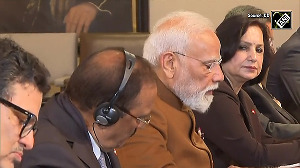People don't change that much, Don't try putting in what was left out, Try drawing out what was left in, That is hard enough.
Thus wrote Marcus Buckingham in his first and best book First Break All the Rules. Built upon the cardinal principle "It's the strengths, stupid", this heavily researched book gives some of the best advice on developing yourself or others.
While most managers agree with this quote, their actions don't. They say, lets put in loads of stuff, some of it is bound to stick. Lets be super efficient, that is, ensure we do it in minimum time possible for maximum people possible. And in case the "weak" ones don't get it the first time, make sure you repeat it again and again. Finally, if nothing works, we do an "organisational training needs" study to launch another initiative.
Results, however, are elusive. "Half our training dollars are a complete waste. I wish I knew which half", laments Sanjay, talent development head at a leading technology company. He is not alone. As services overtake the manufacturing and agriculture sectors, developing quality knowledge workers is the single most demanding and often frustrating challenge for organisations. How do you truly develop people, and not just clock training hours?
Bring them to a boil and then simmer, I say. It's actually less sadistic than it sounds. Just like a good dish, people too need to be brought to boil, and then simmered over slow flame. Instead of dumping loads of information on people, if one could somehow get them to want it, the process of learning would become self-propelling. A 'boil' experience, where people get a sense of "Gosh! I need to learn", is built around a provocative experience, reflection, honest feedback and dialogue. Its goal is to make people self-aware and seek learning.
Boil is not enough. Awareness must be followed by on-the-job deep action and learning. Simmering is the time for significant work challenges, skills training at frequent intervals, and committed coaches who give feedback. Intense, and often difficult, periods where you fall down, pick yourself up, and maybe fall again.
Or "the crucible" of learning as the leadership guru Warren Bennis calls it. Indeed if you look at the experience of revered corporate schools like GE, Procter & Gamble, and McKenzie that have produced generations of highly sought professional managers, their training is rooted in deep action, skilling, and top-class coaching. I still remember how I resented the one-page-memo drill in my early years at P&G. Today, I cannot thank those years enough.
It is not surprising therefore, that the 'simmer' type on-the-job experience and mentoring and coaching by experienced seniors, is rated by many as the most effective professional development tool. Research at the Center for Creative Leadership has shown that on-the-job experiences produce more learning than classroom training activities. It identifies five particularly useful experiences: 1) Temporary projects 2) Change in level of responsibility 3) Switch from line to staff 4) Start-up 5) Turn-around experience. The message clearly is: get a tough assignment early and you'll be happy you roughed it out.
Speaking to the IIT Delhi Class of 2006, Azim Premji, shared his top ten lessons from work life with the graduating eager beavers. Lesson #3 was "Nothing Succeeds Like Failure". "When you lose, do not lose the lesson," he said. The richest man in the country, makes a case for experiencing failure! Being 'boiled and simmered' in the "crucible" may not always be the most enjoyable or pleasantly reassuring view of life, however, it just may be the most fulfilling one.
The author is CEO of iDiscoveri Education





